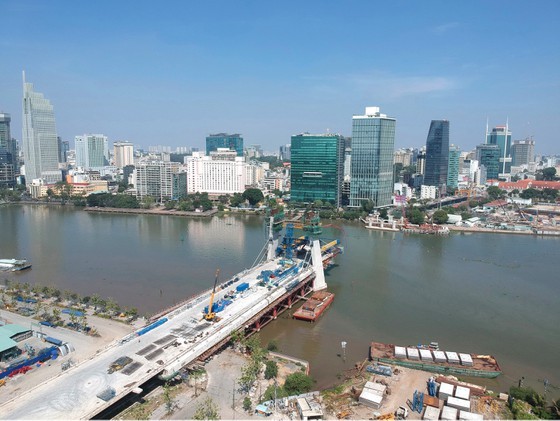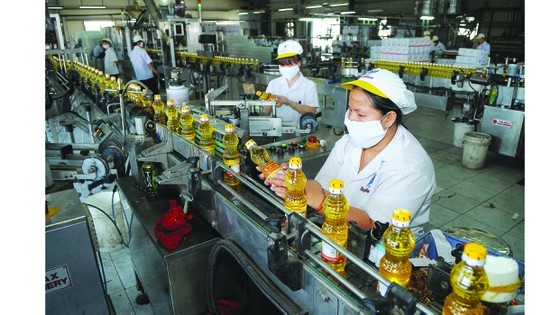
Economic activities soon to be normalized
Over the past 3 months, HCMC has overcome the heights of the pandemic and successfully protected its people.
While focusing resources on combating the virus and implementing social distancing, the Government still advocates to prevent economic recession, especially the disruption of production and distribution chains. However, there have been many businesses subjected to bankruptcy.
Almost 50% of registered businesses and 10% of business households of Vietnam are based in HCMC. Therefore, the city’s economic activities are more prone to external impacts compared to the whole country.
HCMC has been implementing four programs, including controling of the spread of the virus, ensuring social security, supporting production and business, and resolving administrative obstacles to promote public investment, along with other policies (as per Resolution 02/2020 dated March 27, 2020 of HCMC People's Council).
Dr. Lich suggested that HCMC should pay attention to that measures to prevent the pandemic's recurrence from further hindering economic activities, and the “new normal” does not limit economic activities, despite decreased scale of operation. Additionally, all solutions proposed for this period must be implemented effectively to stimulate both total demand and total supply.
Government spending considered imperative
Regarding social security, Dr. Lich said the city needed to quickly deploy the social security package of VND 62,000 billion (about US$2.6 billion) to support people affected by the pandemic. This program will also help stimulate consumption, influencing other economic activities since its beneficiaries are people with high consumption volume.
Furthermore, he proposed reducing the prices of essential services and goods, and helping businesses with wages to help them refrain from dismissing workers.
Specifically, HCMC needs to promote government spending, which is the most efficient factor to increase total demand and stimulate total supply in the time being. However, the current government spending support package of about VND 700,000 billion (about US$30 billion) is facing administrative roadblocks due to overlapping regulations which require regulations to be revised.
Dr. Lich urges HCMC to prioritize resolving these roadblocks to push government spending, as well as asking the Government to guarantee PPP loans while ensuring the safety of public debt and stabilizing national finance.
 Production of essential goods in HCMC
Production of essential goods in HCMC
Post-COVID-19 opportunities
When "post-Covid-19" is considered as a long-term process, Vietnam has the opportunity to gain economic recovery earlier than other countries in the region and even worldwide.
Therefore, HCMC needs to build an economic recovery program for "post-Covid-19" with two phases, Dr. Lich advised.
Phase 1 involves the country co-existing with the epidemic and economic activities gradually normalized, which might maintain until the end of 2020. During this phase, there should be situational solutions in place to help businesses sustain and stay relevant in the market and have a chance to recover.
Phase 2 is expected to begin from the start of 2021 when the world economy has completely been normalized. For this phase, the city should implement measures to restore economic growth alongside market restructuring.
Vietnam’s success in combatting the pandemic and protecting people is expected to make the country more appealing to foreign investors regards to business and tourism, Dr. Lich speculated.
Therefore, HCMC needs to develop a new post-epidemic economic development program, including financial and credit support for enterprises, restructuring import and export markets, digitizing economic activities, among other solutions, to be deployed from the fourth quarter of 2020.
























